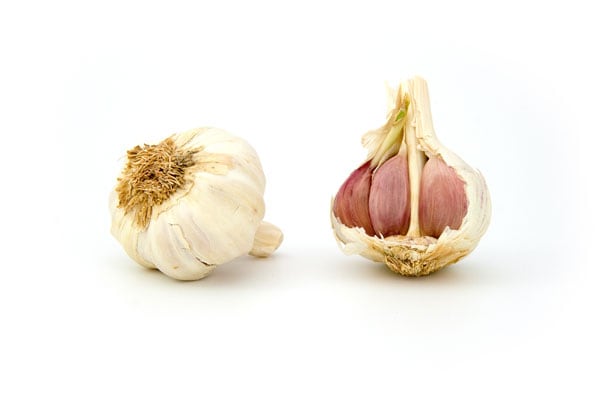Daily doses of Wakunaga’s Reserve formula containing 1.2 g of aged garlic extract powder for 12 weeks were also associated with an 11.5 mmHg reduction in systolic blood pressure and a 6.3 mmHg reduction in diastolic blood pressure in responders, compared to placebo.
“Our trial suggests that aged garlic extract is effective in reducing peripheral and central blood pressure in a large proportion of patients with uncontrolled hypertension, and has the potential to improve arterial stiffness, inflammation, and other cardiovascular markers in patients with elevated levels,” wrote researchers from Australia’s National Institute of Integrative Medicine in Integrated Blood Press Control.
“Aged garlic extract was highly tolerable with a high safety profile as a stand-alone or adjunctive antihypertensive treatment.”
Garlic and heart health
The study adds to the body of scientific literature supporting the potential heart health benefits of garlic and the compounds it contains. Indeed, a recent meta-analysis of 7 randomized controlled trials concluded that garlic supplements could reduce systolic and diastolic blood pressure by an average of 6.71 mmHg and 4.79 mmHg, respectively (Phytomedicine, Vol 22, pp. 352–361).
“Therefore, great economical and clinical benefit could be achieved with the significant BP-lowering effect of garlic,” the meta-analysis concluded. “Importantly, the treatment duration of the included studies ranged from 8 to 12 weeks, and the maximum BP-lowering effects had been exerted at the end of the treatment.”
Consumer awareness of the health benefits of garlic, mostly in terms of cardiovascular and immune system health, has benefited the supplements industry, particularly since consumers seek the benefits of garlic without the odors that accompany the fresh bulb.
The benefits have been linked to the compound allicin, which is not found in fresh garlic: It is only formed when garlic is crushed, which breaks down a compound called diallyl sulphide.

Study details
The researchers recruited 88 people with uncontrolled hypertension to participate in their double-blind randomized placebo-controlled trial. Participants were randomly assigned to receive either 1.2 grams per day of the aged garlic extract (containing 1.2 mg S-allylcysteine) or placebo for 12 weeks.
Results showed significant reductions in mean blood pressure (5.0 mmHg), and systolic and diastolic blood pressure in responders, compared to placebo.
While there were no statistically significant improvements in other measure, there tended to be improvements in central blood pressure, mean arterial pressure, pulse-wave velocity, and arterial stiffness in the garlic group.
“While we did not find significant differences in other cardiovascular markers, favorable effects observed in the inflammatory marker TNF-alpha, as well as total cholesterol, LDL cholesterol, and correlated ApoA and ApoB levels, were in line with previous research, whereby garlic was found to reduce the proinflammatory markers IL-1beta and TNF-alpha, subsequent activation of nuclear factor NF-kappaB, and levels of oxidative LDL in vitro,” wrote the researchers.
Importantly, aged garlic extract was highly tolerable and acceptable, and had no effect on the risk of bleeding in patients on blood-thinning medication, added the researchers.
“Further larger studies are needed to assess the full potential of aged garlic extract on arterial stiffness measures, including [pulse wave velocity] and augmentation pressure, as well as on cardiovascular biomarkers, such as inflammatory markers, lipids, and platelet function,” wrote the researchers. “Additionally, future research should test the hypothesis that individuals’ responsiveness to aged garlic extract intake may be dependent on underlying dietary and genetic factors, such as vitamin B6, vitamin B12, folate levels, and CBS gene polymorphisms.”
Source: Integrated Blood Press Control
2016, Volume 9, Page 9–21, doi: 10.2147/IBPC.S93335
“The effect of aged garlic extract on blood pressure and other cardiovascular risk factors in uncontrolled hypertensives: the AGE at Heart trial”
Authors: K. Ried, N. Travica, A. Sali
